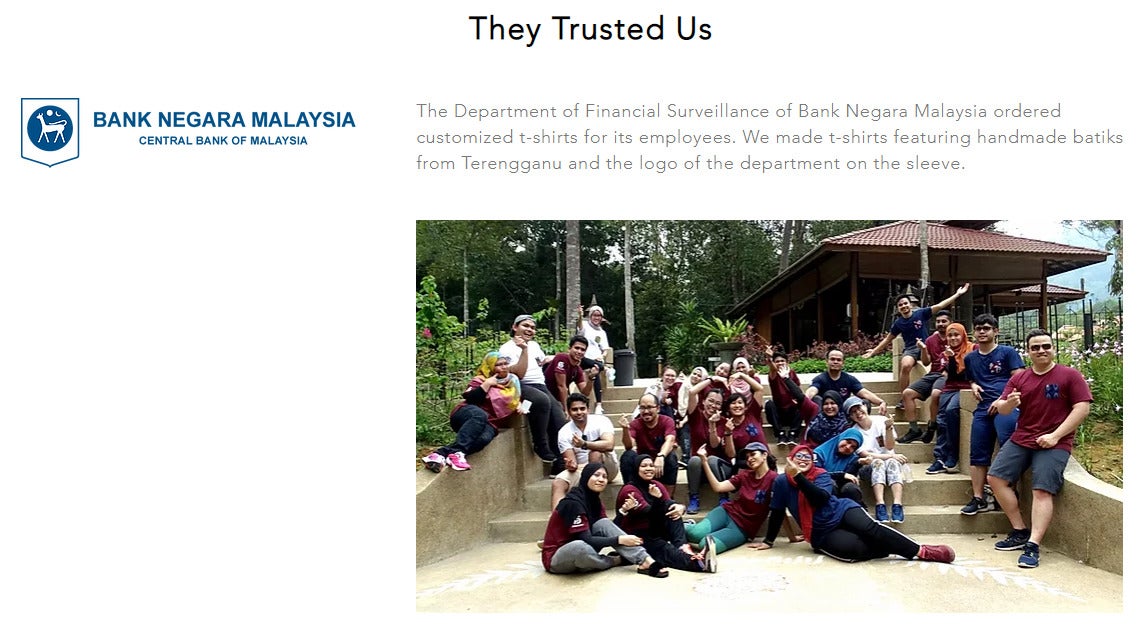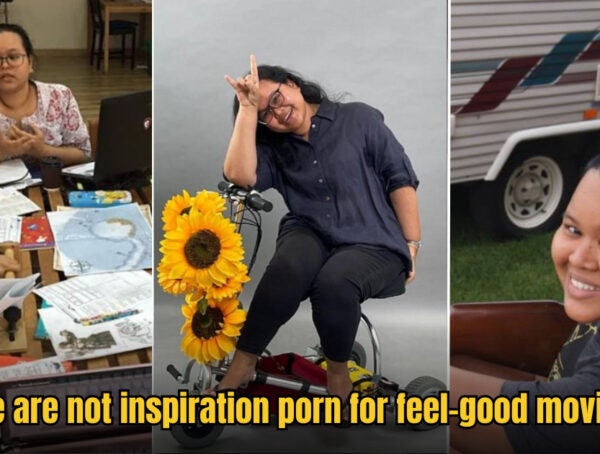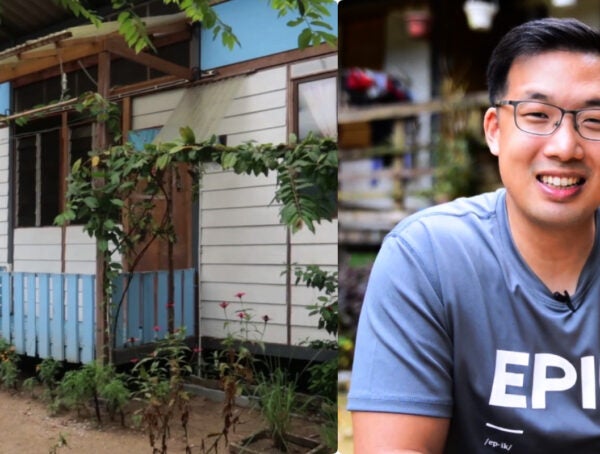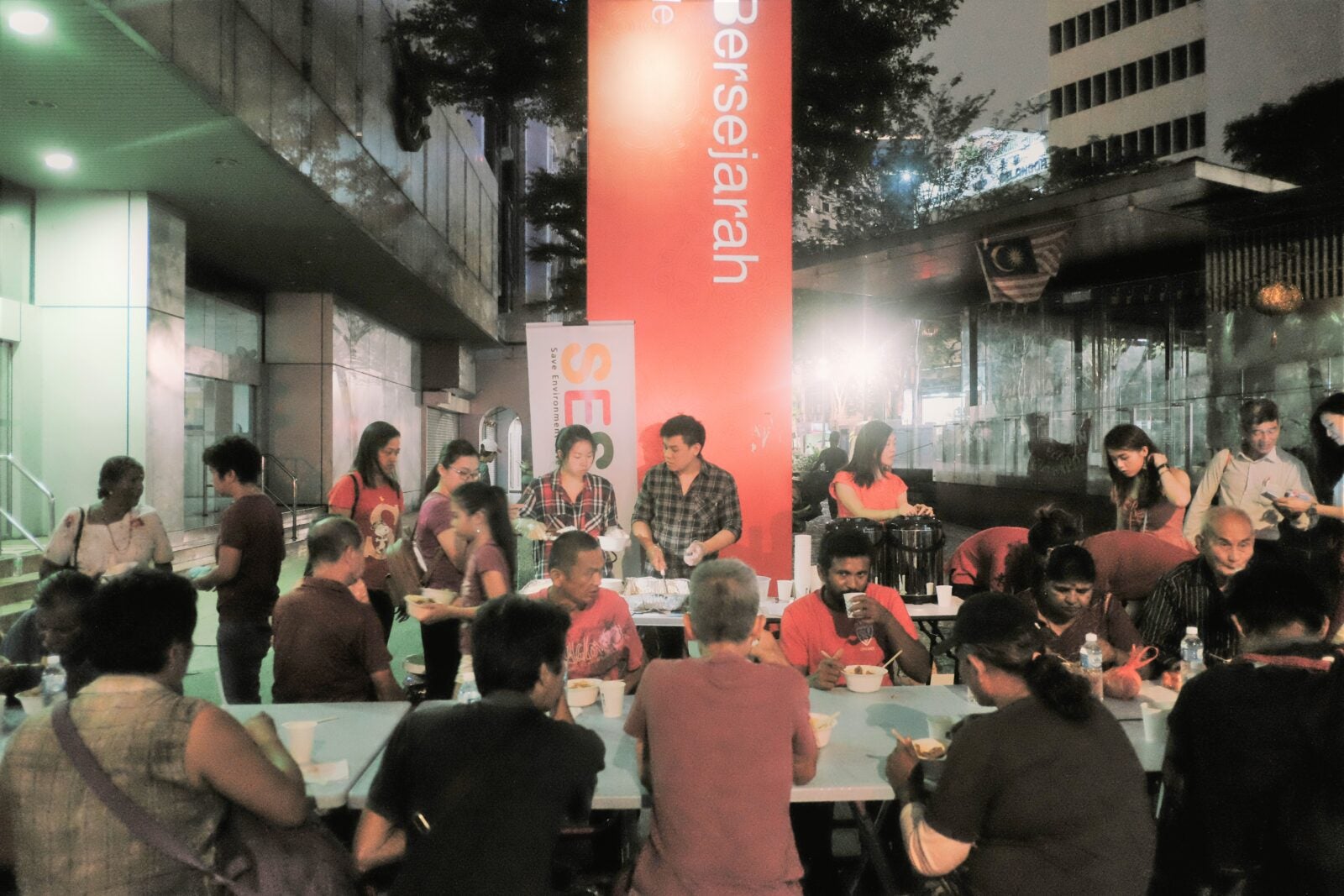INKAA Clothing is a social enterprise based in Kuala Lumpur, that focuses on handmade batik- and mengkuang-based products. It was founded in 2018 by Muizz Aziz and his Belgian business partner, Ludovic Vankerkoven.
Unlike many clothing companies, INKAA works with persons with disabilities (PWD) and refugee women, and aims to empower them by providing sustainable income opportunities.
Furthermore, they also work directly with the local batik artisans and mengkuang weavers across Terengganu, whose numbers have been dwindling over the years.
Preserving Malaysian heritage and promoting conscious consumption
When Ludo arrived in KL four years ago, it was to set up an IT services company with a business partner in Jakarta.
“I did that for about 2 years, we managed to grow and obtained big contracts, but — I found it rather dry, without any social meaning behind it,” said Ludo.
Interestingly, Muizz’s family in Terengganu used to have a batik artisan workshop, but rapid industrialisation and the 1997 Asian Financial crisis forced his family’s batik workshop out of business.
“Since my family business already had the resources and contacts in Terengganu, it all just made sense for us to go in this direction,” Muizz explained.
So once that company was well on its way, Ludo quit his job, and started INKAA together with Muizz.
The dynamic duo started by looking for marginalised communities with sewing skills and the few remaining batik artisan groups across Terengganu. With that, they began working on their first t-shirt designs.
“INKAA is a perfect combination of our personal interests, social work and beautiful craftsmanship. We both love everything about this project and complete each other a lot,” said Ludo fondly.
One of the key identities of INKAA is the emphasis on the artisans, where each product is actually hand-signed with the name of the maker, so the customers can learn about her/his inspiring story on their website.
INKAA grew organically from the t-shirt sales — they never had to add-up capital, and it all started from their RM5,000 initial investment.
Now, Muizz runs INKAA’s online presence and marketing efforts, while Ludo works on the operations and engagement parts – handling customers, communities, and production.
INKAA works closely with the artisans and marginalised communities
“Initially, we reached out to four groups, namely, the traditional batik artisans across Terengganu, UN-registered Myanmar refugees, youths with disabilities in Terengganu, and HKY Collections (a brand that works with a group of women weavers)” said Muizz.
From there, we work closely at every stage of production, from the product design to making prototypes and marketing the final products.
 “We collaborate with the local batik artisans in Terengganu. This team (Masri’s batik artisans) is in-charge of making several batik designs for accessories and pouches,” says Muizz
“We collaborate with the local batik artisans in Terengganu. This team (Masri’s batik artisans) is in-charge of making several batik designs for accessories and pouches,” says Muizz

Myanmar refugee women working on INKAA’s batik Tee.

The ladies of HKY Collections who specialises in hand-woven Mengkuang.

Talent from the TAPAi collaboration. Nur Afni, (on the right) is one of the artisans involved in INKAA’s production.
Why INKAA employs people with disabilities and refugee women
There’s an old saying: “Give a man a fish and you feed him for a day, teach a man to fish and you feed him for a lifetime.”
“Being a social enterprise, we decided to help people with disabilities with work and income to support themselves,” said Ludo.
Ludo and Muizz don’t work with the artisans directly — Cikgu Azie teaches them to sew (in collaboration with TAPAi) and hone their craftsman skills.
“Personally, we think that this would make a more sustainable impact, compared to giving donations” says Muizz.
The First Challenge for INKAA
Once they got their production team trained and running in top gear, the biggest problem was getting people to buy them.
“People didn’t know we existed, and getting the awareness out there definitely took some time.” explained Muizz.
They did set up a booth at some physical market (akin to RIUH bazaars) to get their brand out there, but progress was slow.
 [We got their purchase order and we proudly showcase that on our website.]
[We got their purchase order and we proudly showcase that on our website.]
After a few months of spending weekends at the markets and events, engaging the locals and tourists by explaining what we do and how their purchase would make a difference, they slowly took off. Eventually, more and more people are purchasing through words of mouth or social media presence.
At the moment, Muizz says, the enterprise is surviving, meaning it can pay off its lean operations. Whatever profit that is made is reinvested back into the business.
“Being profitable and financially sustainable is important to survive as a business, but definitely not at the detriment of the bottom line” said Muizz wisely.
“We pay fair wages and give full credit to the artisans we work with. But we also need to be sustainable as a business — that’s the challenge” opined Ludo.
Both Muiz and Ludo have a full-time job and savings to survive during the growth stage of their Social Enterprise venture.
What is INKAA’s next move?
With expanding business, IINKAA just opened their physical space at the Zhongshan Building in Kampung Attap, one of the main arts hubs in Kuala Lumpur. This would hopefully enable more opportunities for growth and collaborations.
Also, Ludo adds, they can also have a new income stream by conducting small and personalised batik workshops.
“For me personally, I am continuing my journey in this social enterprise full-time. And I am also considering business partnerships in Europe,” quipped Ludo.
“Personally,” said Muizz, “I am very much interested in development and public policy work, as well as arts and craft. So for the next few years, I will focus on learning and embracing opportunities to grow in these areas.”
What sets INKAA apart?
“We love to highlight the stories of each person involved in the production process, especially the local artisans, people with disabilities and refugee women. When it is for a good social cause, we believe there would always be Malaysians who will support our initiative,” says Ludo.
Key takeaway:
I understood what a social enterprise is better. They are usually an intersection between three things:
- Preserving an almost forgotten piece of culture.
- Solving a social problem and providing the unfortunate a place in society.
- Being financially sustainable, without sacrificing the social cause.
Their social stories are definitely really inspiring!
Support our local batik & social enterprises:
If you would like to help a good cause, check out and share their website.
For more stories like this, read: 3 Life Lessons I Learnt When I Started Working With Refugees — By Suzanne the Storyteller and How a Jobless Youth Became Cikgu Lan to Help More Than 8000 School Kids.

You might also like
More from Real Skills
How I Saved Almost RM50,000 On Buying My First Car
Here's how this Malaysian man with a RM3,500 salary saved RM50,000 on his first car.
Angry M’sian Boss Demands Unpaid Overtime Over Raya, Causes 9 Staff To Quit
An anonymous employee at a local SME shares how a bad-tempered boss eventually caused 9 staff to quit before Hari …
I Studied In Chinese School As A Malay Boy, Here’s What I Learnt
Every time I used Mandarin outside of school, family members would come up to me at gatherings and ask me …


















